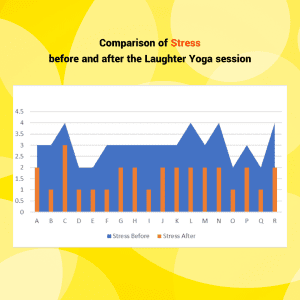Workplace Stress Management: Causes, Impacts and Evidence-Based Solutions
Being aware of our stress levels rising is crucial for maintaining optimal health and achieving effective workplace performance. As we age, our vulnerability to stress increases significantly. Stress Awareness Month, observed annually in April since 1992, aims to increase understanding of workplace stress triggers and effective management strategies for today’s demanding workplace and home life.
What Causes Workplace Stress?
Here are some of the key triggers to workplace stress
Organisational Factors
- Excessive workload: Unrealistic deadlines, understaffing, and mounting responsibilities
- Poor work design: Inefficient processes, unclear procedures, and inadequate resources
- Management issues: Inconsistent leadership, micromanagement, and insufficient feedback
- Organisational changes: Restructuring, mergers, acquisitions, and shifting business priorities
- Role ambiguity: Unclear responsibilities, conflicting expectations, and insufficient direction
- Poor communication: Information overload or uninformed, lack of transparency, and ineffective channels
Interpersonal Workplace Stressors
- Complicated workplace relationships: Conflicts with colleagues and team dynamics issues
- Bullying and harassment: Intimidation, personal attacks, and persistent criticism
- Lack of support: Insufficient help during challenging periods
- Workplace discrimination: Unfair treatment affecting career progression and psychological safety
- Client/customer pressure: Demanding interactions and challenging service expectations
Individual Work Factors
- Lack of control: Feeling powerless over workload allocation and decision-making
- Job insecurity: Persistent worry about redundancies and organisational restructuring
- Career development concerns: Limited progression opportunities or unclear advancement paths
- Work-life imbalance: Blurred boundaries between professional and personal responsibilities
- Personal factors: Individual resilience capacity, past experiences, and current life circumstances
The £51 Billion Problem: The Business Case for Workplace Stress Management
According to Deloitte’s 2023 research, stress and mental health-related absences cost UK employers £51 billion annually. This staggering figure highlights the urgent need for effective workplace stress management strategies.
How Workplace Stress Manifests: Recognising the Warning Signs
Physical Indicators
- Persistent fatigue and energy depletion
- Tension headaches, muscular pain, and digestive issues
- Weakened immune response leading to increased illness frequency
- Sleep disturbances and chronic insomnia
- Potential development of stress-related conditions, including irritable bowel syndrome
Psychological Symptoms
- Anxiety, worry, and racing thoughts about work issues
- Difficulty concentrating and making decisions
- Feeling overwhelmed and unable to cope
- Memory problems and brain fog
- Decreased motivation and creativity
Behavioural Changes
- Withdrawal from workplace social interactions
- Increased absenteeism or presenteeism (physically present but mentally disengaged)
- Changes in eating patterns (over- or under-eating)
- Increased reliance on alcohol, caffeine, or other substances
- Diminished attention to detail, resulting in more mistakes
Workplace Stress Management: Effective Strategies for Employees and Organisations
Individual Stress Management Techniques
- Mindfulness practices: Regular meditation, breathing exercises, and present-moment awareness
- Physical activity: Regular exercise, walking meetings, and movement breaks
- Boundary setting: Establishing clear work-hour limits and technology disconnection periods
- Time management: Prioritising tasks, breaking projects into manageable chunks, and avoiding multitasking
- Social connection: Building supportive relationships and discussing concerns with trusted colleagues
- Resilience building: Developing adaptive thinking patterns and maintaining perspective during challenges
- Self-care routines: Ensuring adequate sleep, nutrition, and personal time
Organisational Workplace Stress Management Approaches
- Workload management: Ensuring realistic deadlines and appropriate staffing levels
- Clear communication: Transparent information sharing about changes and expectations
- Management training: Equipping leaders with stress recognition and support skills
- Flexible working arrangements: Offering remote work options and flexible scheduling
- Professional development: Providing clear career pathways and skill-building opportunities
- Wellbeing programmes: Implementing comprehensive health initiatives, including stress management
- Regular assessment: Monitoring workplace stress levels through surveys and feedback mechanisms
- Environmental improvements: Creating comfortable, well-designed workspaces that reduce physical strain
Laughter Yoga As An Evidence-Based Workplace Stress Management Solution
While workplace stress cannot be eliminated, regular Laughter Yoga practice offers a scientifically proven approach to workplace stress management, simultaneously addressing physical and psychological aspects.
How Laughter Yoga Transforms Workplace Stress
Through a combination of simulated laughter exercises and controlled yogic breathing techniques, Laughter Yoga:
- Rapidly reduces cortisol (stress hormone) levels in the workplace setting
- Deactivates the sympathetic nervous system’s “fight-or-flight” response
- Activates the parasympathetic nervous system, promoting relaxation and recovery
- Creates positive social connections among colleagues
- Provides an accessible group activity suitable for diverse workplace environments
- Requires minimal time investment for significant wellbeing returns
Scientific Evidence That Laughter Yoga Helps Stress Levels
A peer-reviewed randomised controlled trial demonstrated Laughter Yoga’s effectiveness in buffering the body’s endocrine stress response, making it an ideal workplace stress management intervention.
On average 50-60% of stress is released through Laughter Yoga. Take a look at the evidence graph below:
Implementing Effective Workplace Stress Management Programmes
Key Implementation Steps for Organisations
- Conduct a workplace stress risk assessment to identify specific organisational stressors
- Develop a comprehensive stress management policy and action plan
- Train managers to recognise stress symptoms and provide appropriate support
- Implement both preventative and responsive stress management interventions
- Regularly evaluate programme effectiveness and make necessary adjustments
- Foster a supportive workplace culture that destigmatises stress-related discussions
Measuring Workplace Stress Management Success
- Reduced absenteeism and presenteeism rates
- Improved employee engagement scores
- Decreased staff turnover
- Enhanced productivity and work quality
- Positive feedback through wellbeing surveys
- Improved team dynamics and communication
Transform Your Workplace Stress Management Strategy
Employers can significantly reduce the £51 billion annual cost of stress-related absences by implementing evidence-based workplace stress management programmes like Laughter Yoga and Non-Sleep Deep Rest – Yoga Nidra. Full details of what happens in a Laughter Yoga session are found in this article, or watch the video here
For more information on stress-relieving Laughter Yoga sessions, burnout prevention workshops, and comprehensive workplace stress management solutions for your organisation:
Contact Sara at happy@seriouslaughter.co.uk or call/WhatsApp 07974 778091
*Research reference: https://pubmed.ncbi.nlm.nih.gov/32393092/ – Scientific study on Laughter Yoga’s effects on stress response
*Additional reference: https://www.deloitte.com/uk/en/about/press-room/poor-mental-health-costs-uk-employers-51-billion-a-year-for-employees.html
.deloitte.com/uk/en/about/press-room/poor-mental-health-costs-uk-employers-51-billion-a-year-for-employees.html








